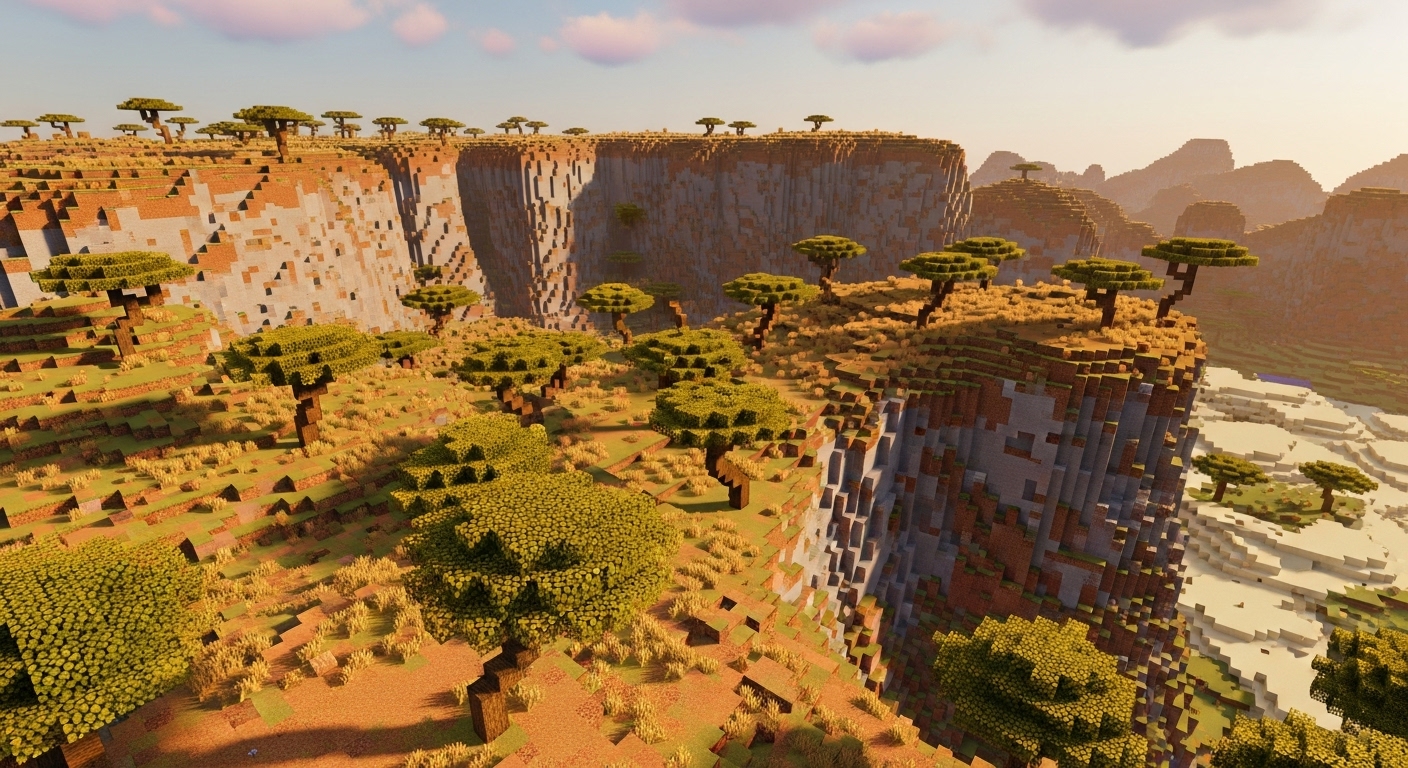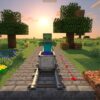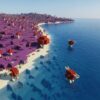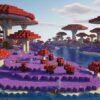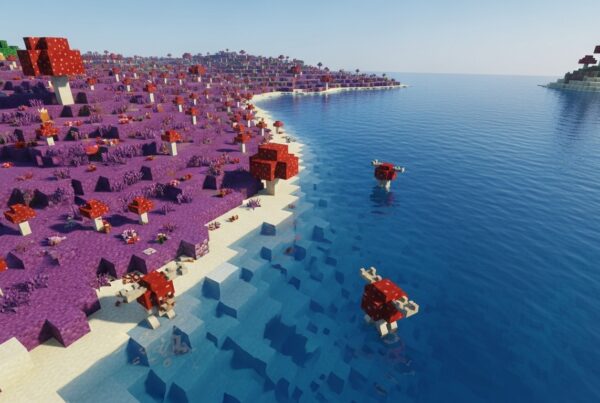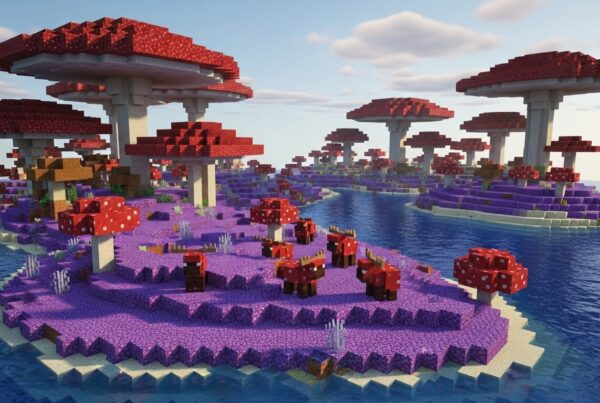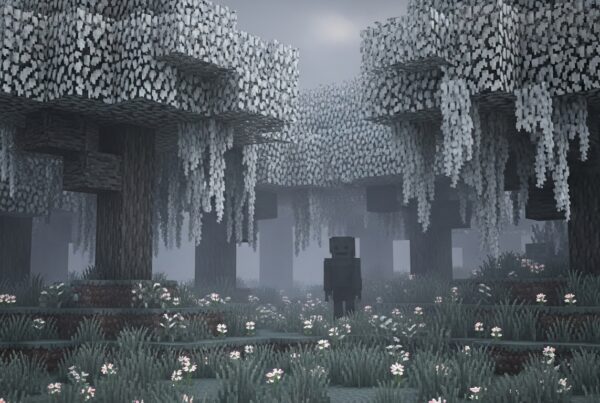The Savanna Plateau biome— found in older versions of Minecraft or after the 1.18 update represented through high-elevation Savannas and Windswept Savannas—is one of the game’s most dramatic warm biomes. Known for its towering cliffs, flat-topped mesas, orange-tinted grass, and iconic acacia trees, these elevated lands offer a visually striking environment and exciting survival challenges.
While the original “Savanna Plateau” existed as a named biome before Minecraft 1.18, plateau-style Savannas still generate today on tall terrain, blending traits of classic Savannas with rugged Windswept features. This guide combines both classic and modern biome behavior to give players the most complete understanding possible.
Biome Overview & Key Stats
| Biome Category | Warm / Arid |
|---|---|
| Temperature | 1.0 (hot biome) |
| Weather | No rain — skies always clear |
| Typical Elevation | Y=80–140+ depending on version |
| Surface Blocks | Grass, dirt, stone, occasional coarse dirt |
| Vegetation | Acacia trees, tall grass, dead bushes (rare) |
| Rarity | Moderate (classic), uncommon (modern high plateaus) |
Finding Savanna Plateau Terrain Today
Savanna-style plateaus generate in dry, warm regions near:
- Savannas
- Windswept Savannas
- Badlands
- Deserts
- Sparse Jungles
How to find them:
- Look for extremely high terrain with acacia trees.
- Search near warm biomes on world maps or seed previewers.
- Use the command:
/locate biome minecraft:savanna or minecraft:windswept_savanna
(Modern versions, 1.18+)
In older versions (≤1.17), the biome is a distinct variant called Savanna Plateau or Shattered Savanna Plateau.
Terrain and Generation Features
High Cliffs & Elevated Mesas
Savanna Plateau terrain is famous for:
- Steep, towering cliffs
- Flat-topped mesas perfect for building
- Jagged peaks in Windswept variants
- Overhangs and floating chunks
In 1.18+ world generation, these plateaus now form using new noise-based height rules, making them taller and more dramatic.
Vegetation & Ground Cover
- Pale, dry-looking grass
- Acacia trees with angled trunks
- Sparse tall grass
- Occasional coarse dirt and exposed stone
The dryness gives the biome its distinct, sun-faded color palette.
Biome Variants (Classic & Modern)
- Savanna Plateau (Legacy) — wide, flat mesas
- Shattered Savanna Plateau (Legacy) — extreme overhangs and chaotic terrain
- Windswept Savanna (Modern) — rugged, elevated hills with Savanna colors
- High Savanna Terrain (Modern) — unnamed plateau-like Savanna areas post-1.18
Mobs in the Savanna Plateau
Passive Mobs
- Sheep
- Cows
- Pigs
- Chickens
- Horses
Horses spawn frequently and are extremely useful for exploring the rugged terrain.
Hostile Mobs
Standard hostile mobs spawn at night:
- Zombies
- Skeletons
- Creepers
- Spiders
- Endermen
Shaded cliff edges can spawn mobs during the day, especially in Windswept variants.
Mob Density Notes
- Flat plateau tops can be efficient for hostile mob farms once flattened.
- Shadows under overhangs increase daytime hostile spawns.
Resources and Useful Blocks
Acacia Wood
One of the biome’s biggest attractions:
- Bright orange planks
- Great for modern and desert-themed builds
- Easy to farm on plateau tops
Stone, Coal, and Iron
Cliff faces often expose:
- Coal veins
- Iron ore (especially at mid elevations)
Animals for Food & Crafting
Reliable sources of:
- Wool
- Leather
- Pork, beef, chicken
Water Access
Plateaus often have limited natural water. Players may need to:
- Use buckets to bring water up
- Create artificial lakes or farms
- Capture water sources from rivers below
Structures That Generate
Savanna Plateau regions may contain or border:
Villages
- Common in regular Savannas
- Rare on plateau tops due to uneven terrain
Pillager Outposts
- Can spawn in both Savanna and Windswept Savanna
- Often appear near the base of plateaus
Ruined Portals
- Can generate on plateau tops or cliff sides
Mineshafts
- Frequently found beneath plateaus, especially in fossil-rich areas
Modern terrain makes spotting structures easier from high vantage points.
Advantages of Living in a Savanna Plateau
1. Incredible Views
High altitude provides sweeping views of nearby:
- Deserts
- Badlands
- Jungles
- Rivers
2. Natural Mob Defense
Many ground-level mobs struggle to reach high plateaus.
3. Flat, Build-Ready Terrain
Mesa tops are ideal for:
- Large bases
- Crop farms
- Livestock pens
- Tree farms
4. No Rain
Weather clarity makes the biome perfect for:
- Redstone builds
- Outdoor aesthetics
- FPS improvement in some systems
Challenges & Survival Risks
Steep Drops
Fall damage is the #1 danger:
- Skeleton knockback
- Missteps while traveling
- Nighttime exploration hazards
Limited Water Sources
Farms require manual water placement.
Sparse Early-Game Resources
Animals may be spread out across multiple plateaus.
Fire Spread
The dry biome burns quickly if lightning or lava ignites vegetation.
Ravines & Caves
Plateaus often generate over:
- Large ravines
- Deep caves
- Exposed dripstone or lush cave entrances
Best Survival Tips
Building Tips
- Use stairs or ladders to safely access cliffs.
- Build bridges between high plateaus.
- Fence off cliff edges around your base.
- Incorporate acacia into builds for natural biome harmony.
Resource Tips
- Begin a sustainable tree farm.
- Bring water from lower biomes for crop fields.
- Tame horses early to improve mobility.
- Use cliffside mining to expose ores quickly.
Combat Safety
- Avoid cliff edges during fights.
- Light up shadow pockets under overhangs.
- Use a shield to prevent knockback.
- Build a safe descent route (water elevator recommended).
Recommended Builds for Savanna Plateau
Savanna Plateaus are perfect for:
- Cliffside bases overlooking the world
- Sky bridges connecting mesas
- Acacia-themed villages
- Observation towers using natural height
- Windmill-style farms on plateau tops
- Modern villas using bright acacia and terracotta contrast
The natural landscape encourages architectural creativity.
Nearby Biome Synergy
Savanna Plateaus often border:
- Deserts (easy sand and cactus farming)
- Badlands (abundant terracotta and gold ore)
- Jungles (bamboo, cocoa beans, parrots)
- Rivers (water access, clay, fishing)
This makes plateau bases excellent central hubs for multi-biome resource networks.
Seeds Featuring Savanna Plateau Terrain
| Scenario | Seed | Notes |
|---|---|---|
| High Savanna cliffs near Badlands | Seed: 6111319423462695413 (Java, legacy) | Spawn near a “Savanna Plateau” biome with dramatic terrain. Might need some exploration to find the Badlands contiguous to it. |
| Windswept Savanna next to Jungle Temple | Seed: -3426591315744277465 (1.21) | This seed features a Windswept Savanna on a desert coast; not guaranteed a Jungle Temple adjacent, but good biome mix. |
| Savanna village at the base of a plateau | Seed: -7158805320559101603 (legacy) | This seed “in default 1.8” features a village near a Savanna Plateau. |
Comparison: Savanna vs. Savanna Plateau vs. Windswept Savanna
| Feature | Savanna | Savanna Plateau (Legacy) | Windswept Savanna (Modern) |
|---|---|---|---|
| Height | Low–moderate | Very high mesas | Extremely tall, rugged |
| Terrain | Flat, grassy | Flat tops, steep cliffs | Jagged, chaotic peaks |
| Vegetation | Dense acacia | Sparse acacia | Sparse vegetation |
| Difficulty | Easy | Moderate | Hard |
| Structures | Villages common | Villages rare | Outposts possible |
| Best For | Early bases | Scenic builds | Extreme survival |
Version History & Changes
Minecraft 1.18 (“Caves & Cliffs Part 2”)
- Classic Savanna Plateau biome removed or merged into new terrain rules
- Plateau-like generation now handled through height-based noise
- Many “Shattered” terrain types replaced by Windswept variants
Modern Behavior
- Elevated Savannas and Windswept Savannas serve the same gameplay role
- Terrain is taller, more dramatic, and more varied
Frequently Asked Questions
Does the Savanna Plateau still exist?
Not as a named biome in modern versions. However, high-elevation Savanna terrain still generates and plays similarly.
Do villages spawn on plateaus?
Almost never—they require flat, even surfaces.
Is this biome good for beginners?
The steep terrain adds difficulty. Best for intermediate or adventurous players.
Are acacia trees the only wood here?
Yes, making the biome perfect for acacia-themed builds.
Final Thoughts
The Savanna Plateau—whether in its classic biome form or today’s high-elevation Savanna regions—remains one of Minecraft’s most breathtaking landscapes. Its dramatic cliffs, beautiful acacia trees, and unique warm ambiance make it ideal for players who crave exploration, challenging survival, or ambitious architectural projects.
With the right strategies, tools, and creative ideas, you can transform these elevated lands into one of the most rewarding bases in your world.
